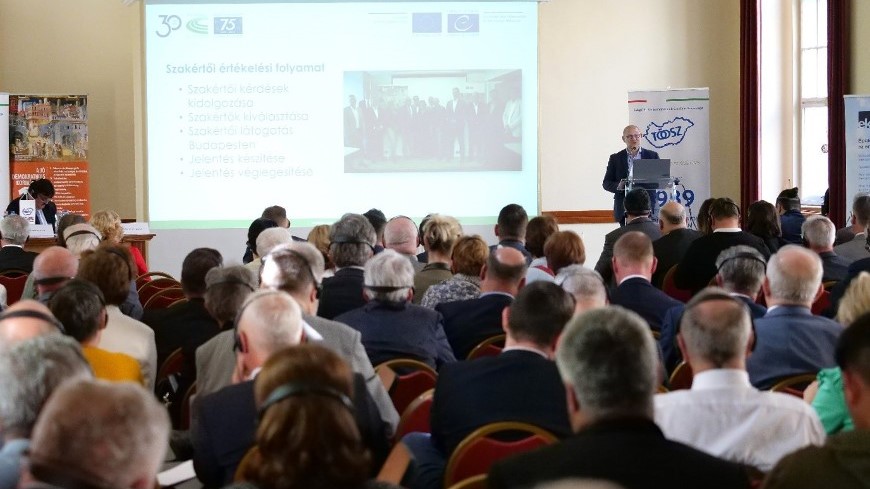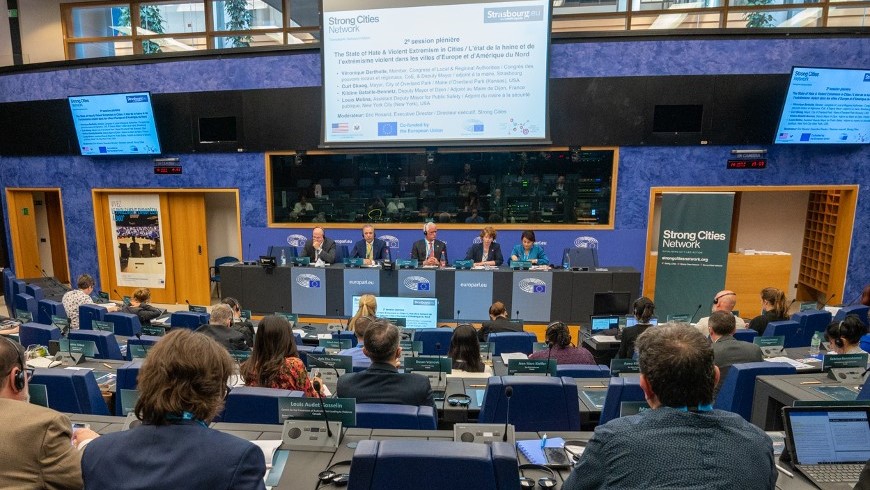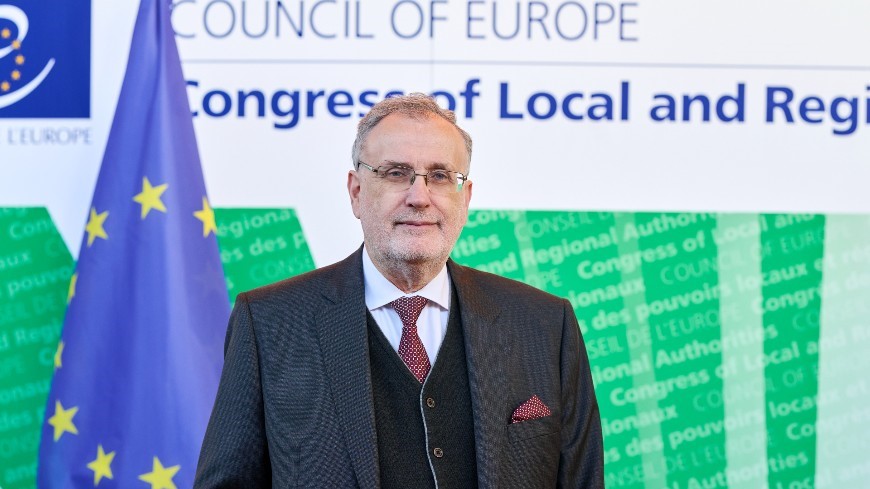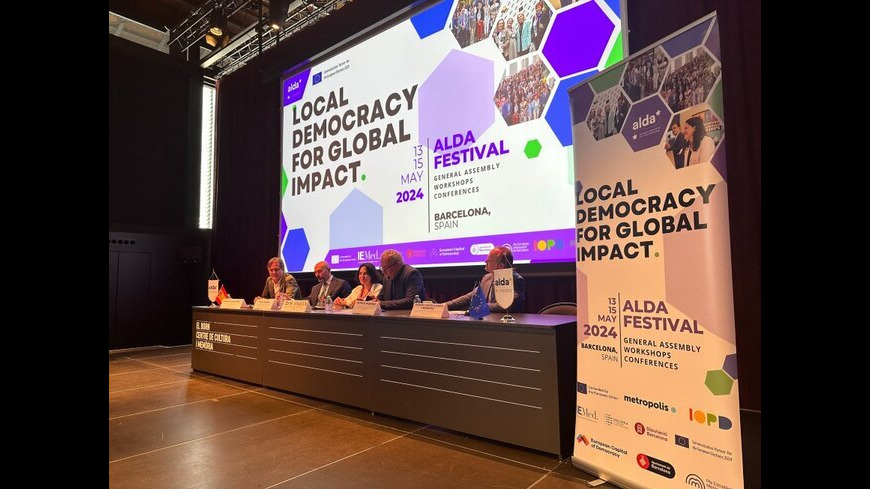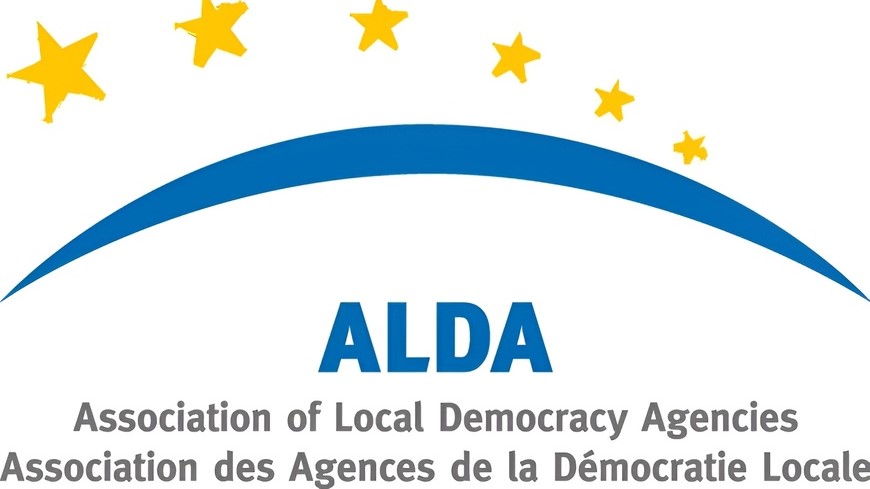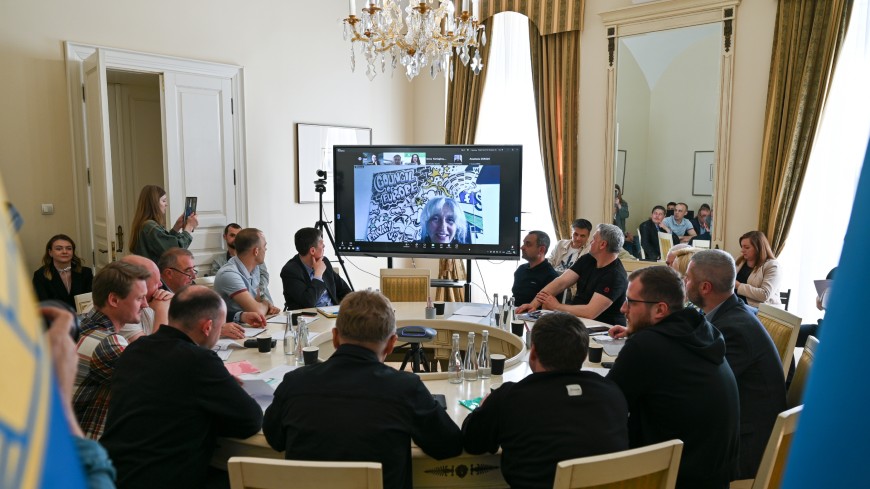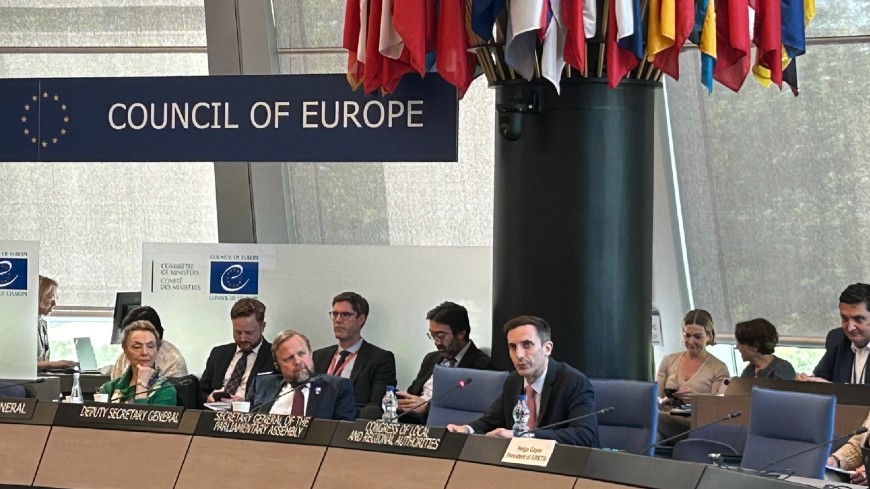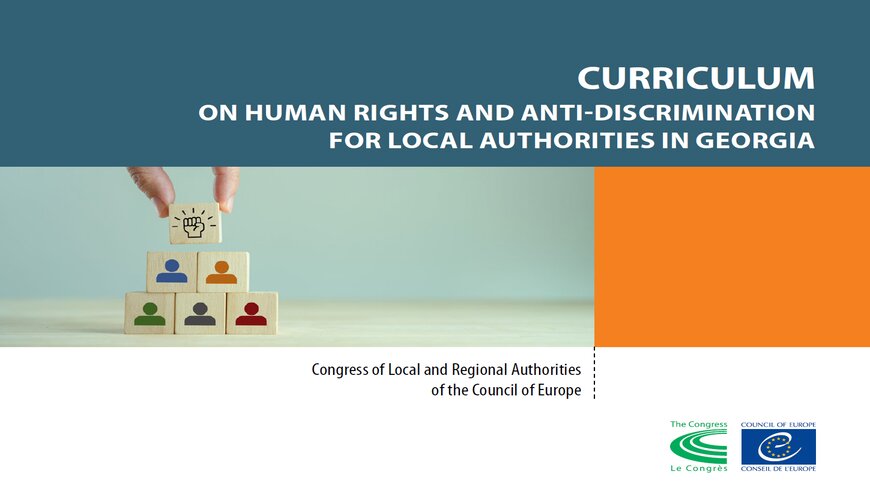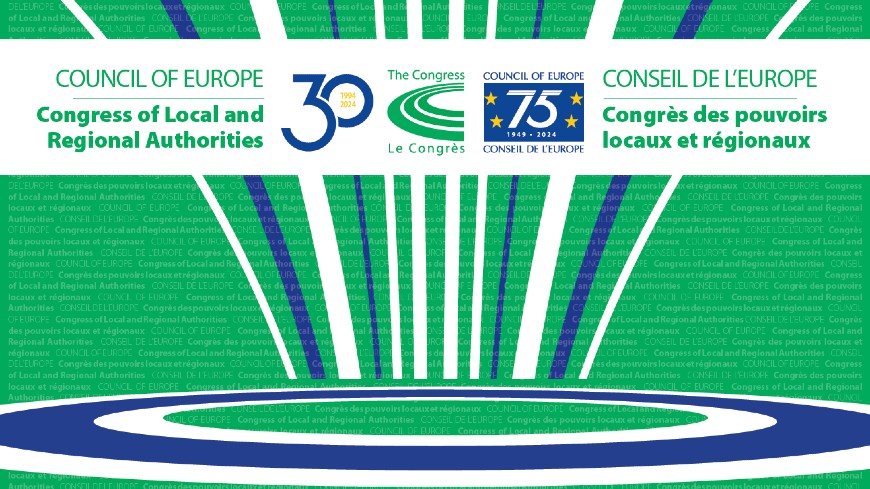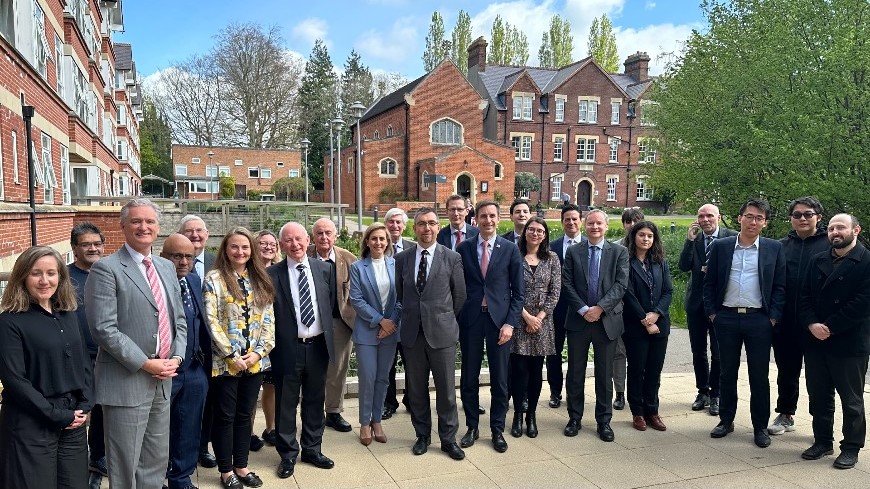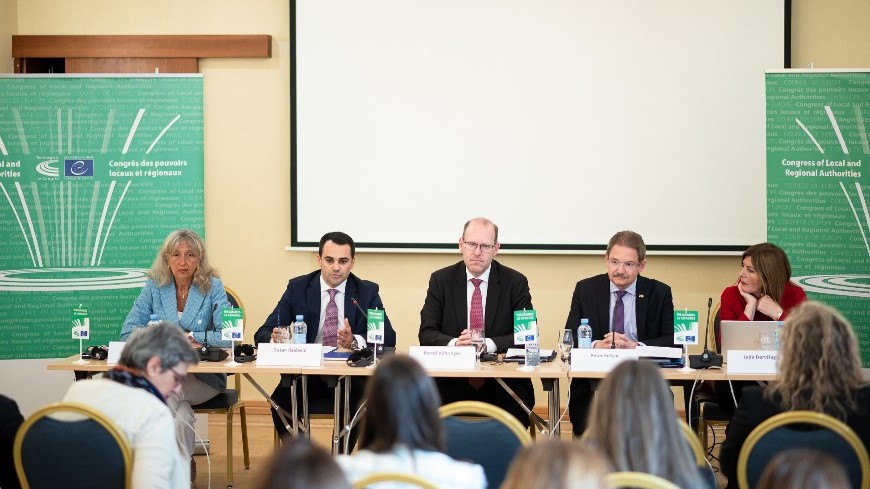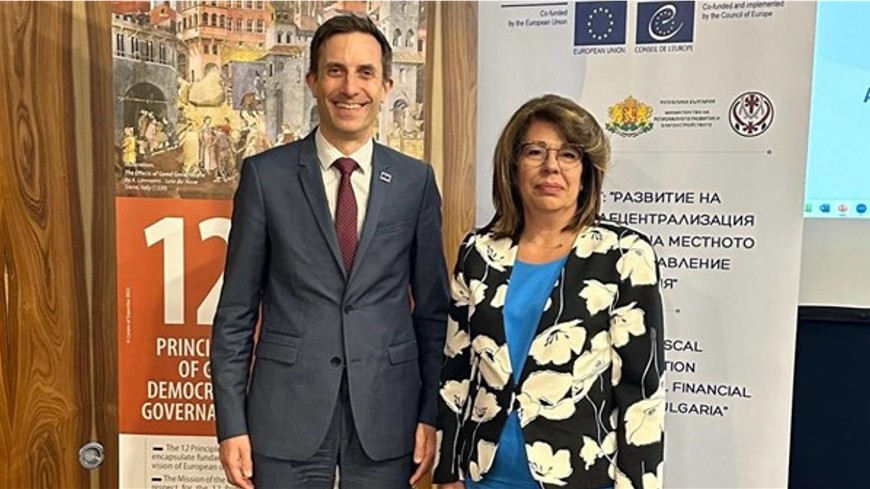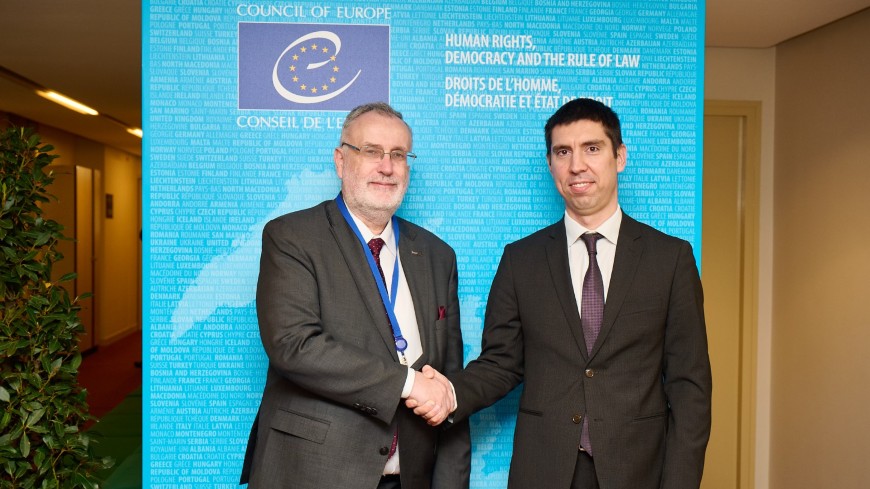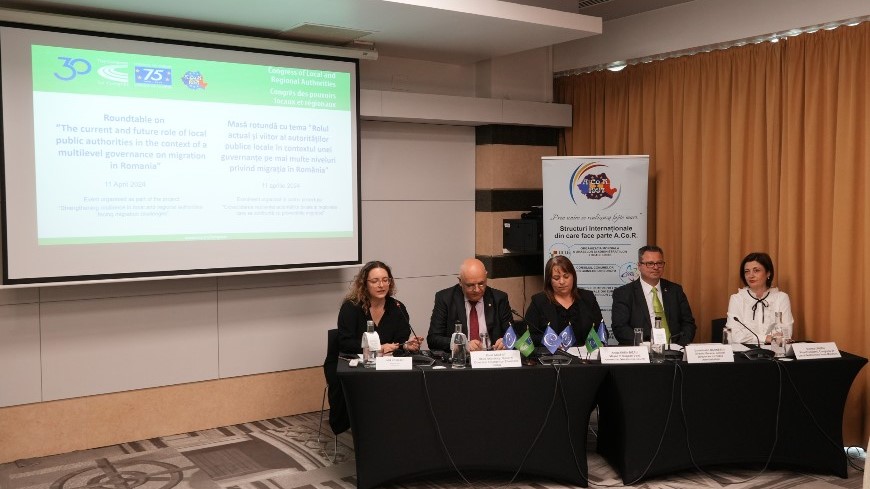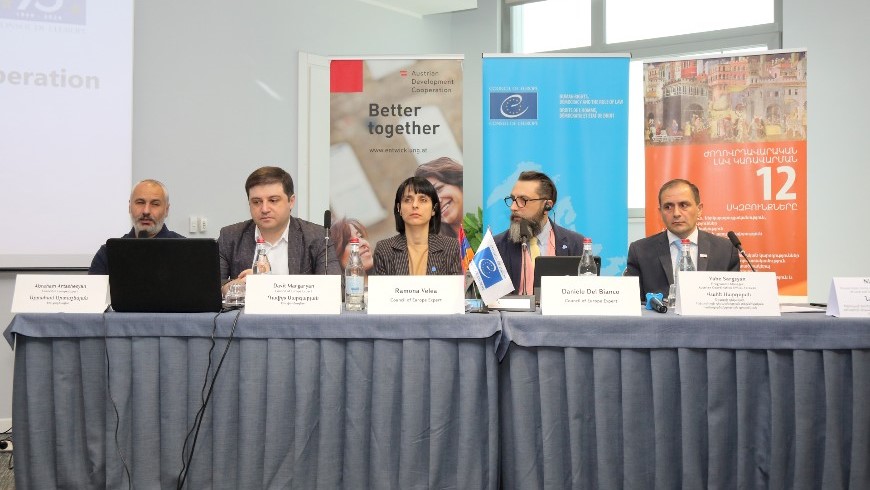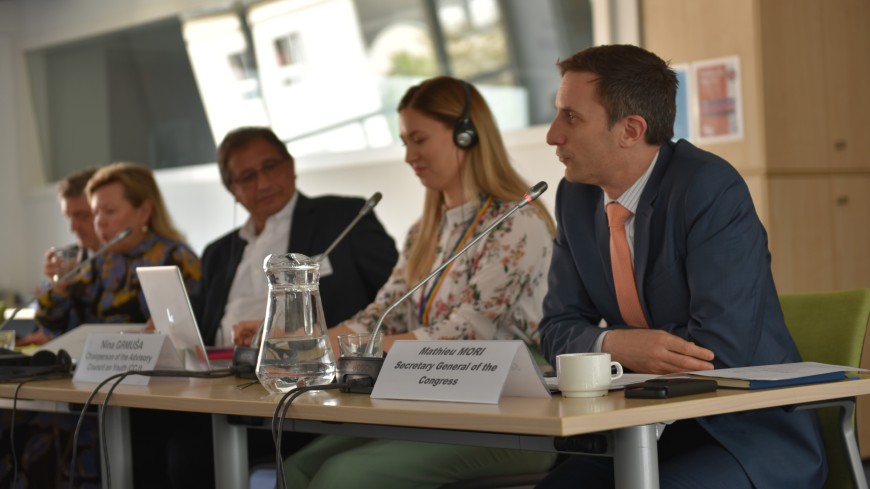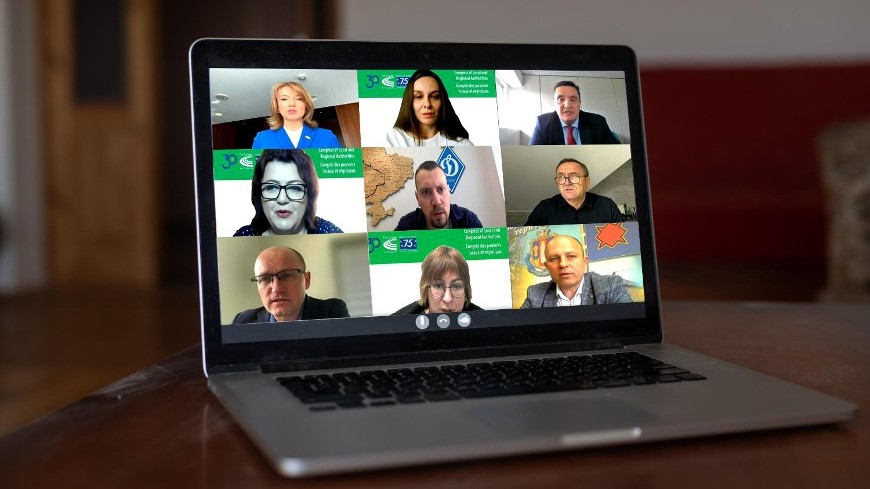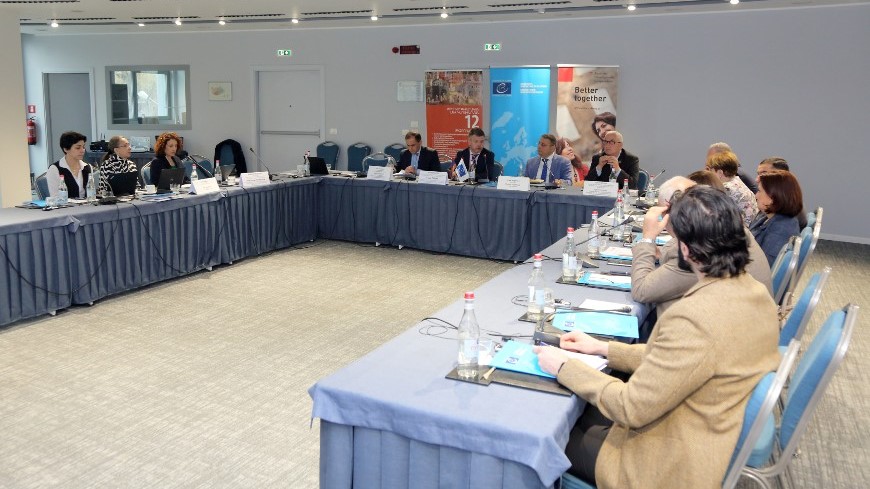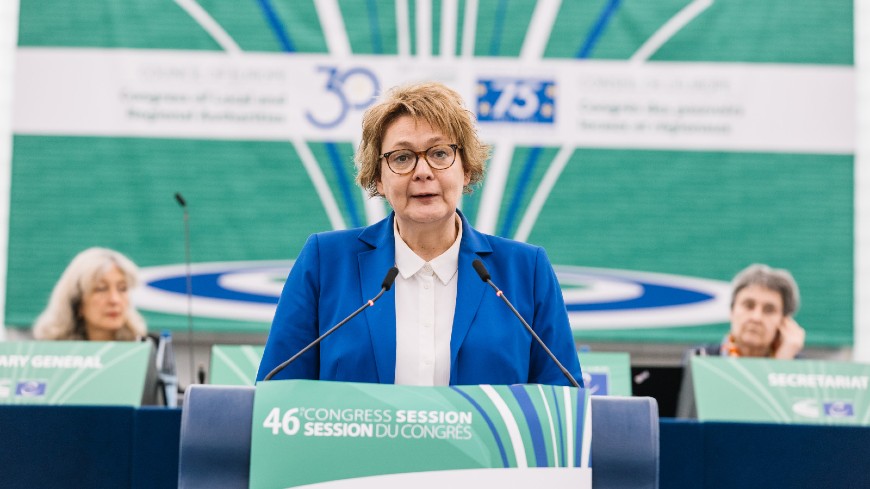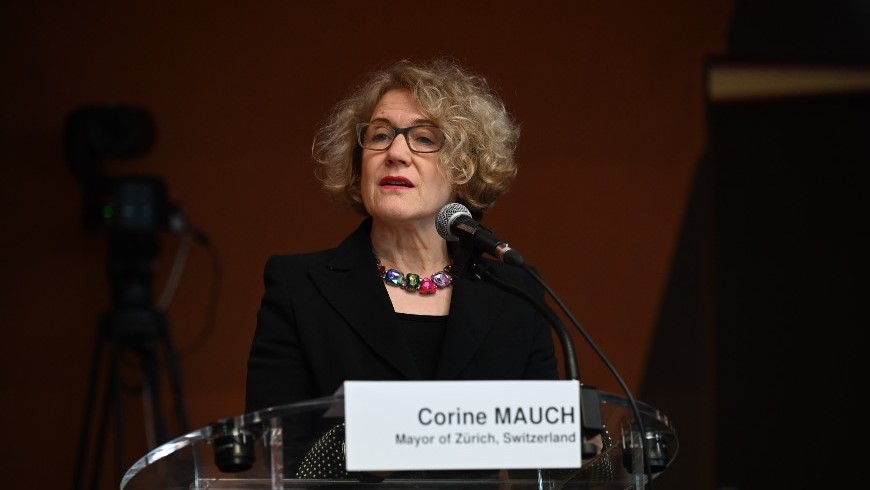Founded in 1994 – following a decision taken at the 1st Council of Europe Summit in Vienna the previous year – the Congress, which took over from the Conference of Local Authorities of Europe established in 1957, has pioneered European-level co-operation for local and regional authorities in Council of Europe member states. Since being set up, it has played a key part in ensuring increased recognition for them, while helping them to boost their effectiveness and role, and it can be proud to have advanced local democracy across the continent. In a time when democracy is increasingly being questioned and tested, the lessons gleaned from local democracy can now, in turn, help to revitalise democratic practices in Europe.
Bringing together past and present Congress leaders and members, the 30th Anniversary Round Table focused on the present and the future, rather than simply recalling the years gone by. Five speakers were asked to discuss the key issues that make the Congress successful and unique today. Dominique Faure, the French Minister for Local and Regional Authorities and Rural Affairs, paid tribute to her predecessor of many years ago, Jacques Chaban-Delmas, a member of the Parliamentary Assembly of the Council of Europe, for persuading the latter to involve local and regional authorities in the process of building Europe. She stressed the importance of grassroots democracy in addressing the challenges facing our societies today, reminding us that democracy is first and foremost a local matter.
Josep Dallerès, Andorra’s former ambassador to the Council of Europe, expressed his concern that contemporary democracy was being undermined “by lies, compromising of individuals and propaganda”. Contrary to what had been assumed for too long, democracy was not something to be taken for granted, but a culture to be taught and learned. He again put forward the idea of setting up a Council of Europe educational framework for this purpose. As two former presidents of the Congress, Giovanni Di Stasi of Italy and Ian Micaleff of Malta, said, democracy was first and foremost a question of attitude. There were rules to be followed, of course, but certain standards of conduct were also required. This was echoed by Karl-Heinz Lambertz, President of the German-speaking community in Belgium and several times Vice-President of the Chamber of Regions of the Congress. In his view, “nothing is ever set in stone in democracy”, and beyond the achievements that have been made, “democracy is best reinvented at local level” – exactly as the Congress was doing.
Innovative practices and programmes at the Congress
In addition to its specific activities, which range from monitoring local and regional democracy to observing elections and implementing key Council of Europe guidelines at local and regional level, the Congress stands out for its often innovative working methods, which can also serve as an example, particularly in terms of gender equality, citizen participation and the involvement of young people in local and regional public life.
Danela Arsovska, Mayor of Skopje, North Macedonia’s capital, is one of only two female mayors in the country and is also chair of the Macedonian delegation to the Congress. “My position shows that women can and must make their voices heard much more than they do today, including to better counter hate speech and harassment,” she said, also calling on men to do more to support women facing such behaviour. Throughout its work, the Congress strives to promote equality and, as its President Marc Cools pointed out, also puts this into practice: the delegations are required to ensure that at least 30% of the members they appoint are of the under-represented sex. And although Austria’s Gudrun Mosler-Törnström pointed out that she had been the only female president of the Congress to date, she hoped that other women would one day follow in her footsteps. She also noted that the Congress in its current form, officially established by the 1993 Vienna Summit, had always been “a source of inspiration and pride” for her.
José Manuel Ribeiro, Mayor of Valongo, Portugal, focused on the participation of citizens in local political life, one of the other key policies advanced by the Congress in recent years. In his view, citizen participation “strengthens the capacity of public policy to transform society” and the sovereignty of citizens in no way undermines the legitimacy of elected officials. His city therefore involves its residents as much as possible in major decisions, especially because “local people are much more creative than consultants”.
Young people are bringing renewal to the Congress
Bringing young people on board and taking their expectations into account is another strength of the activities and policies of the Congress. Since 2014, youth delegates have attended and spoken at Congress sessions alongside elected officials. Everybody agreed that standards here were rising every year, as demonstrated by many creative ideas and proposals. Zeljko Vuksa-Fejzic, a lawyer from Sarajevo, was the youth delegate for Bosnia and Herzegovina in 2023. He spoke passionately about how engaging young people could help them to resist illiberal and authoritarian regimes. Local democracy could be a gateway to politics for young people, who were best placed to topple dictators. Local democracy was a force for freedom that “uplifts democracy as a whole”, a view welcomed and echoed by several other speakers.
Many of the youth delegates present felt that as local democracy began at school, youth assemblies (whether for young adults, teenagers or even schoolchildren) should be set up in every country, along the lines of the children’s “municipal councils” in France. Gender equality was one of the other priorities to be pursued at the local level, as several youth delegates pointed out before the session closed on this topic, with many ideas put forward.
Statement by President Marc Cools (French only)
Programme of the anniversary
Poster of the anniversary
Video recording
***
46th Session
Agenda – Web file – Photos
























